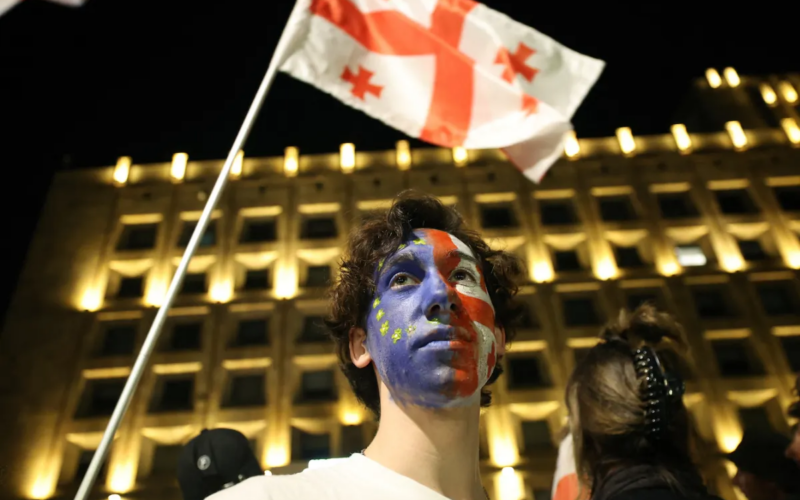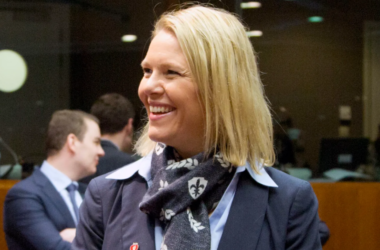Georgia’s aspirations for European Union membership have hit a roadblock due to a contentious foreign influence law, European leaders announced at a summit in Brussels.
The European Union views Georgia’s recent legislative move as a step backward in its journey toward EU accession, effectively stalling the process, EU officials stated during the summit.
Last December, Georgia was granted candidate country status by the EU, contingent upon meeting specified criteria such as comprehensive justice reforms.
However, the passage of Georgia’s new foreign influence law, set to take effect soon amid widespread protests, has sparked condemnation from EU leaders. Critics of the legislation, including opponents who refer to it as a “Russian law,” argue that it resembles existing legislation in Russia and is designed to suppress dissent ahead of the upcoming parliamentary elections in October.
Under the new law, media outlets and non-governmental organizations (NGOs) that receive over 20% of their funding from foreign sources must register as entities acting in the interest of a foreign power. They are subject to stringent audits or face severe fines.
Georgian authorities defend the law as necessary to ensure transparency in foreign funding of NGOs and to safeguard the country against external interference. However, both EU officials and the United States have voiced concerns that the law threatens freedom of speech and democratic processes.
Pawel Herczynski, the EU’s ambassador to Georgia, expressed dismay over the legislation, emphasizing that it has effectively halted Georgia’s integration into the European Union, according to Georgia’s Interpress news agency.
The law has sparked mass demonstrations across Georgia, with thousands taking to the streets to protest its implementation. Reports have also emerged of threats and physical assaults targeting NGO workers, activists, and opposition figures during these rallies.
In response to these developments, EU leaders condemned the escalating intimidation tactics and assaults on civil society representatives, political leaders, activists, and journalists in Georgia. They emphasized the importance of ensuring that the upcoming elections are conducted freely and fairly.
Moving forward, the European Union pledges to closely monitor the situation in Georgia and has called on the Georgian government to reconsider its stance on the foreign influence law in order to resume progress toward EU membership.
For ongoing updates on this evolving situation, stay informed with reliable news sources tracking developments from Brussels and Tbilisi.







